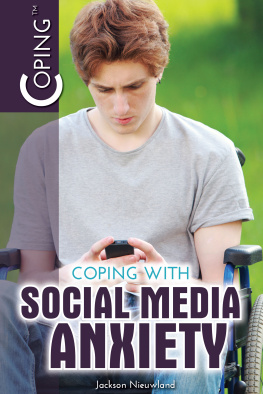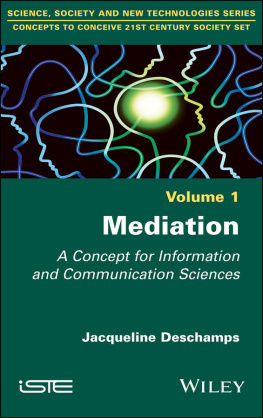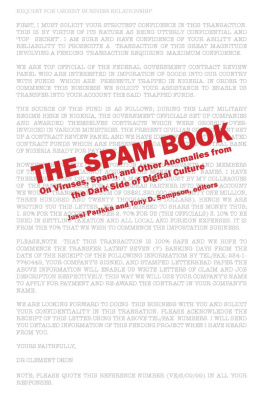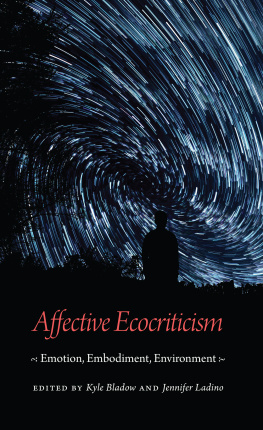Tony D. Sampson - Affect and Social Media: Emotion, Mediation, Anxiety and Contagion
Here you can read online Tony D. Sampson - Affect and Social Media: Emotion, Mediation, Anxiety and Contagion full text of the book (entire story) in english for free. Download pdf and epub, get meaning, cover and reviews about this ebook. year: 2018, publisher: Rowman & Littlefield, genre: Politics. Description of the work, (preface) as well as reviews are available. Best literature library LitArk.com created for fans of good reading and offers a wide selection of genres:
Romance novel
Science fiction
Adventure
Detective
Science
History
Home and family
Prose
Art
Politics
Computer
Non-fiction
Religion
Business
Children
Humor
Choose a favorite category and find really read worthwhile books. Enjoy immersion in the world of imagination, feel the emotions of the characters or learn something new for yourself, make an fascinating discovery.

- Book:Affect and Social Media: Emotion, Mediation, Anxiety and Contagion
- Author:
- Publisher:Rowman & Littlefield
- Genre:
- Year:2018
- Rating:4 / 5
- Favourites:Add to favourites
- Your mark:
- 80
- 1
- 2
- 3
- 4
- 5
Affect and Social Media: Emotion, Mediation, Anxiety and Contagion: summary, description and annotation
We offer to read an annotation, description, summary or preface (depends on what the author of the book "Affect and Social Media: Emotion, Mediation, Anxiety and Contagion" wrote himself). If you haven't found the necessary information about the book — write in the comments, we will try to find it.
Tony D. Sampson: author's other books
Who wrote Affect and Social Media: Emotion, Mediation, Anxiety and Contagion? Find out the surname, the name of the author of the book and a list of all author's works by series.
Affect and Social Media: Emotion, Mediation, Anxiety and Contagion — read online for free the complete book (whole text) full work
Below is the text of the book, divided by pages. System saving the place of the last page read, allows you to conveniently read the book "Affect and Social Media: Emotion, Mediation, Anxiety and Contagion" online for free, without having to search again every time where you left off. Put a bookmark, and you can go to the page where you finished reading at any time.
Font size:
Interval:
Bookmark:

Radical Cultural Studies
Series editors: Fay Brauer, Maggie Humm, Tim Lawrence, Stephen Maddison, Ashwani Sharma and Debra Benita Shaw (Centre for Cultural Studies Research, University of East London, UK)
The Radical Cultural Studies series publishes monographs and edited collections to provide new and radical analyses of the culturopolitics, sociopolitics, aesthetics and ethics of contemporary cultures. The series is designed to stimulate debates across and within disciplines, foster new approaches to Cultural Studies and assess the radical potential of key ideas and theories.
Sewing, Fighting and Writing: Radical Practices in Work, Politics and Culture, Maria Tamboukou
Radical Space: Exploring Politics and Practice, edited by Debra Benita Shaw and Maggie Humm
Science Fiction, Fantasy and Politics: Transmedia World-Building Beyond Capitalism, Dan Hassler-Forest
EU, Europe Unfinished: Europe and the Balkans in a Time of Crisis edited by Zlatan Krajina and Neboja Blanua
Postcolonial Interruptions, Unauthorised Modernities, Iain Chambers
Austerity as Public Mood: Social Anxieties and Social Struggles, Kirsten Forkert
Metamodernism: Historicity, Affect, Depth edited by Robin van den Akker, Alison Gibbons and Timotheus Vermeulen
Affect and Social Media: Emotion, Mediation, Anxiety and Contagion, Edited by Tony D. Sampson, Stephen Maddison and Darren Ellis
Pornography, Materiality and Cultural Politics, Stephen Maddison (forthcoming)
Writing the Modern Family: Contemporary Literature, Motherhood and Neoliberal Culture, Roberta Garrett (forthcoming)
The Male Body in Digital Culture, Jamie Hakim (forthcoming)
Gender and Sexuality in Space Culture, Kat Deerfield (forthcoming)
Published by Rowman & Littlefield International Ltd
Unit A, Whitacre Mews, 2634 Stannary Street, London SE11 4AB
www.rowmaninternational.com
Rowman & Littlefield International Ltd.is an affiliate of Rowman & Littlefield
4501 Forbes Boulevard, Suite 200, Lanham, Maryland 20706, USA
With additional offices in Boulder, New York, Toronto (Canada), and Plymouth (UK)
www.rowman.com
Selection and editorial matter Tony D. Sampson, Stephen Maddison and Darren Ellis 2018
Copyright in individual chapters is held by the respective chapter authors.
All rights reserved. No part of this book may be reproduced in any form or by any electronic or mechanical means, including information storage and retrieval systems, without written permission from the publisher, except by a reviewer who may quote passages in a review.
British Library Cataloguing in Publication Data
A catalogue record for this book is available from the British Library
ISBN: HB 978-1-7866-0438-5
PB 978-1-7866-0439-2
Library of Congress Cataloging-in-Publication Data
Names: Sampson, Tony D., editor. | Maddison, Stephen, 1970-editor. | Ellis, Darren, editor.
Title: Affect and social media : emotion, mediation, anxiety and contagion / edited by Tony D. Sampson, Stephen Maddison and Darren Ellis.
Description: London ; New York : Rowman & Littlefield International, [2018] | Series: Radical cultural studies | Includes bibliographical references and index.
Identifiers: LCCN 2018007129 (print) | LCCN 2018008968 (ebook) | ISBN 9781786604408 (Electronic) | ISBN 9781786604385 (cloth : alk. paper) | ISBN 9781786604392 (pbk. : alk. paper)
Subjects: LCSH: Social mediaPsychological aspects. | Affect (Psychology)
Classification: LCC HM742 (ebook) | LCC HM742 .A4156 2018 (print) | DDC 302.23/1dc23
LC record available at https://lccn.loc.gov/2018007129
 The paper used in this publication meets the minimum requirements of American National Standard for Information SciencesPermanence of Paper for Printed Library Materials, ANSI/NISO Z39.481992.
The paper used in this publication meets the minimum requirements of American National Standard for Information SciencesPermanence of Paper for Printed Library Materials, ANSI/NISO Z39.481992.
Printed in the United States of America
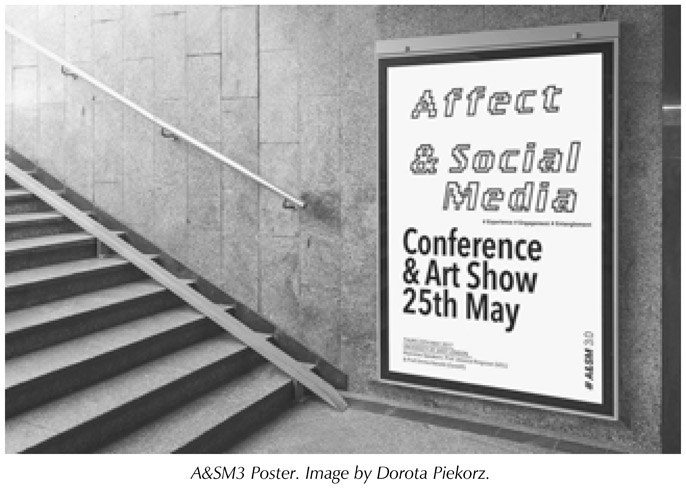
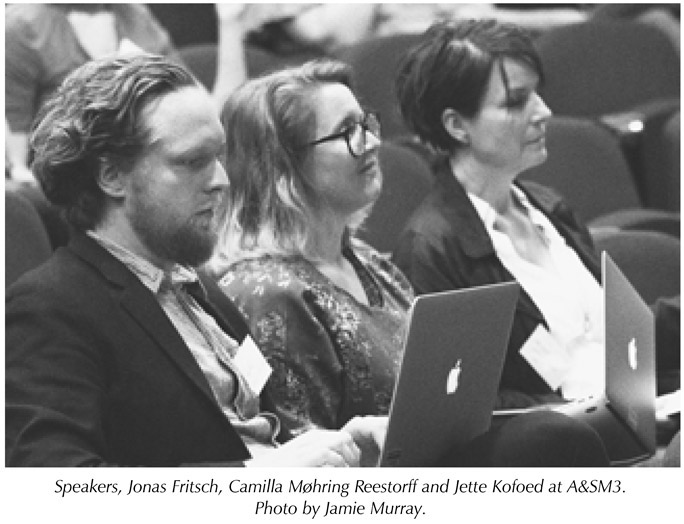
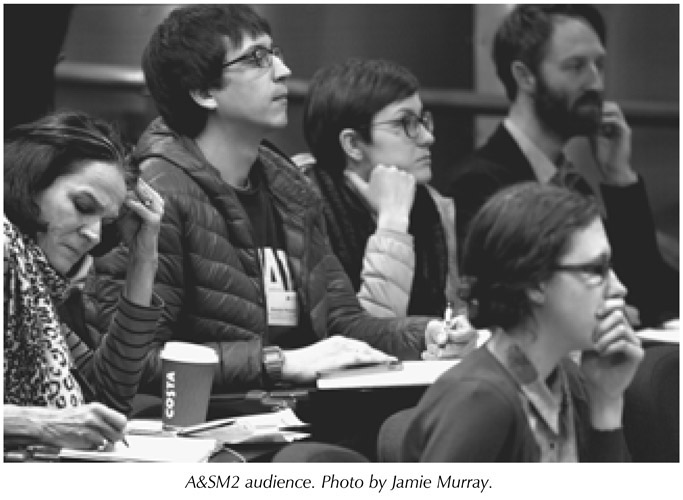
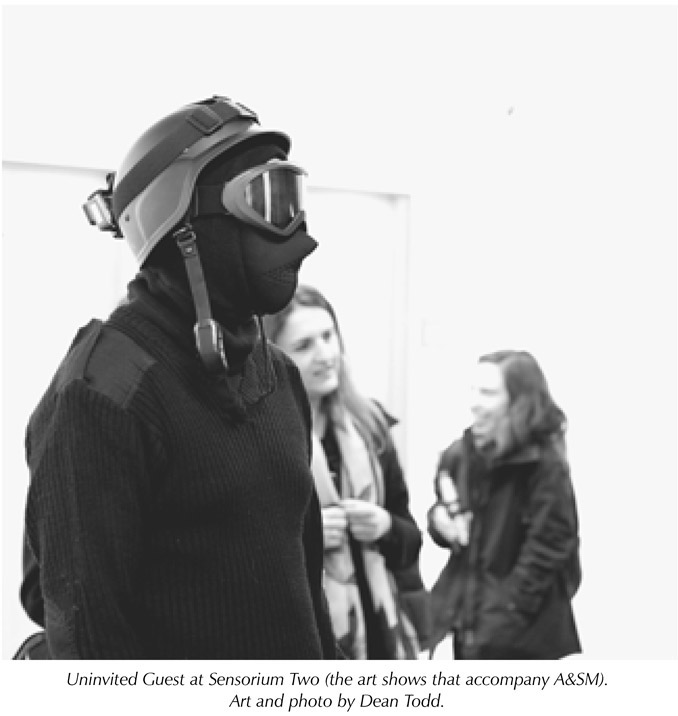
Gregory J. Seigworth
I T IS EASY, wrote Gilles Deleuze in his unsettlingly prescient 1990 Postscript on Control Societies essay, to set up a correspondence between any society and some kind of machine.
Wait... hold on a minuteeasy? What? Did anyone alert the editors of this brilliant collection of writings? But Deleuze knew that at a certain level of abstraction, it is not especially difficult to say something like The contemporary era has been fundamentally reshaped and redefined by the rise of social media. Indeed, such pithy pronouncements are sometimes so commonplace that they can feel simultaneously quasi-profound and thoroughly banal. Oh yes! Oh, yawn. To stake a claim, then, about a machineas a highly particular and interwoven configuration of practices, materials, technologies, and sensations/sensibilitiescorresponding to any society (this present one, that past one, some future one) must arrive not with the finality of declaratory closure but, instead, will work only if it serves to open up fresh lines of inquiry: to catalyze evocative mappings and excavations, to afford opportunities for counterclaims and inversions, to tend to the subtlest shadings of processes and events (in both their vapors and tendrils). As each of the sections and chapters of this book amply demonstrate, such an approach is at the very heart of Deleuzes belief that he was, at once, a pluralist and an empiricist. By eschewing the relative ease of sweeping abstractions in order to pursue the singularities of the concrete, Deleuze argues that the abstract does not explain, but must itself be explained; and the aim is not to rediscover the eternal or the universal, but to find the conditions under which something new is produced. Okay then, maybe not so easy.
Bringing affect on-board for such a critical undertaking further complicates the scenario. Thats because affect doesnt track. At least not straightforwardly or cleanly. Whatever vectors, whatever blooms or decays, whatever pilings or foldings or pealings: affect just doesnt lift up and neatly separate from its situatedness, not without bringing along a tangle, a clot, a smudgy impression (or an over-determined expression).
Approaching social media through the shifting prisms of affect theories almost certainly guarantees that two things will happen: (1) the social of social media will be understood as more-than-social (by encompassing the hard-and-fast nonhuman materialities and more evanescent atmospheres that extend through and beyond fleshy human sociality) and that (2) apprising the (im-)mediations of media will serve as a reminder that something like Human Computer Interaction (HCI) or digital interface is merely one of our most contemporary ways of describing what continually transpires in the rhythms and ruptures of a bodys [any-body-whatever] capacities to affect and to be affected by the moving wedge of the in-between. Given this intertwining, the affective study of social media tends to take on the qualities of a sort of cartographic endeavor, a plotting of coordinateswhere the latitudes of the extra-/other-than-human social (stretched, pulled, extended
Font size:
Interval:
Bookmark:
Similar books «Affect and Social Media: Emotion, Mediation, Anxiety and Contagion»
Look at similar books to Affect and Social Media: Emotion, Mediation, Anxiety and Contagion. We have selected literature similar in name and meaning in the hope of providing readers with more options to find new, interesting, not yet read works.
Discussion, reviews of the book Affect and Social Media: Emotion, Mediation, Anxiety and Contagion and just readers' own opinions. Leave your comments, write what you think about the work, its meaning or the main characters. Specify what exactly you liked and what you didn't like, and why you think so.

